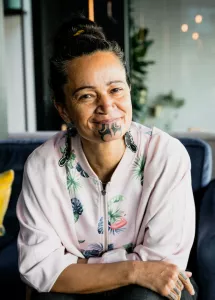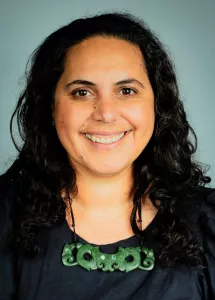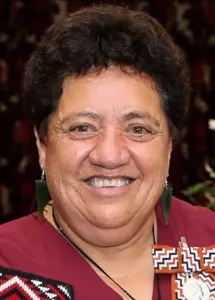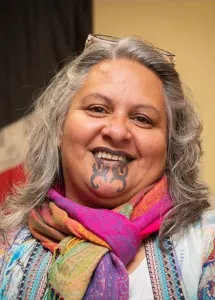
Since a young age, Chloe Fergusson-Tibble has wanted to be a doctor. During her studies, she has remained focused on her own whakapapa to ensure she stays committed to using Māori approaches in healthcare. Chloe is now in her final year of medical school at Waipapa Taumata Rau, University of Auckland.
During her time in Māori mental health services, she has witnessed firsthand the health inequities Māori face. She has also observed how very few people in health services have the ability or confidence to work in a tikanga-based way. These experiences motivated Chloe to pursue a career in medicine with the goal of becoming a doctor who embraces Māori values.
Throughout her degree, she has been part of the Māori and Pacific Admission Scheme (MAPAS) at the University of Auckland. Being a MAPAS student has provided her with an evidence-based understanding of the health inequities Māori encounter. The scheme offers support beyond maths and biology classes by teaching students the language needed to communicate with whānau about health issues.
Chloe is passionate about providing whānau with access to Māori doctors. She believes that the rollout of the Covid-19 vaccine could have been more Te Tiriti-based. To assist whānau in making informed decisions, she emphasises the need for wānanga where Māori can engage in open discussions with one another about their experiences, questions, fears, and reservations. For this to be effective, it should be facilitated by Māori who possess technical medical expertise and knowledge of te ao Māori and the process of wānanga.
Links:
As a doctor, being Māori is my superpower
Chloe Fergusson-Tibble says being given the choice to vaccinate is important for tāngata whaiora
Celebrating Māori writing and storytelling
Fighting misinformation: ‘We need to wānanga’
Chloe Fergusson-Tibble says being given the choice to vaccinate is important for tāngata whaiora
Tū Pakari, Tū Taha – Tangata Whaiora hesitant about the COVID-19 vaccine



